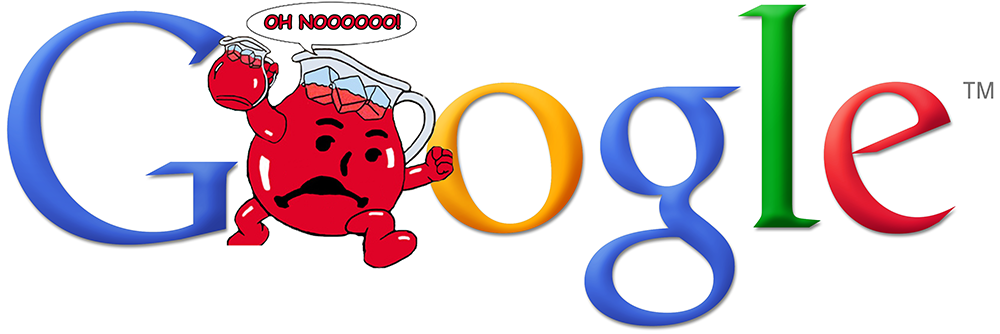So let me begin by saying, I have largely cut Google out of my life, but I can’t get that last 1-2% out! It is really, really hard! I started out this series of posts called Getting Out of Google knowing that it would be technically possible and that it would just be a matter of time to do it. Unfortunately, I quickly ran up against some problems. I’ll go through them below, but the takeaway is that this is an endemic issue in our society. Once you drink the Kool-aid, you are in for life. As far as I’m concerned, this definitely applies to Google, less so to Apple, and even less to Amazon (I still really like their Kool-aid). So let me take you through five instances where I got stuck and my pseudo-solutions.
Failures
#1: The G-Word
I’ve tried, but it is hard to say “search the web” or “search the internet” every time you want to say “google it.” I’ve worked especially hard to do this when I’m teaching, but it always takes me an extra second and people mostly look at you like you are from 1998. Oh and my wife makes fun of me, that isn’t encouraging.
#2: gmail
For the last 10 years (approximately) I have had the same @gmail address. Everyone who has ever changed email addresses knows there will always be stragglers. When I switched hosting providers and switched my email to an @timschwartz.org address, I setup forwarding of my @gmail account to my new email. I initially thought that this would last a few months till everyone had updated my email address and I had gotten out of all Google systems. For example in just the last week I’ve gotten about ten emails to my old address from people who still haven’t updated their address books, oy! But the other reason I had to keep my gmail account active was to deal with other Google products that I couldn’t get out of, notably Google Docs.
#3: gDocs
So I have a J.O.B. at a college and this said college, like a lot of academic institutions (not to mention almost every business and non-profit out there), uses Google Docs internally for collaboration on documents. I will say that for real-time collaboration for writing documents there isn’t a great alternative. etherpad is obviously the closest, but their formatting pales in comparison (oh no, I just gave Google a thumbs up!), but whatever the reason, there are outside factors like my job that make it so that I have to use Google Docs. Now you might be saying, “Tim you loser, you gave up, you didn’t try hard enough to get out of Google Docs,” and I’d reply that you are pretty close to the truth. I will say, I have exported my documents out of Google and converted them to word docs. This is pretty easy to do. The only other way I think I could have dealt with this issue and continued forward would to have started another Google account separate from my main one, and done all collaboration over there, but just starting another account wouldn’t really bring me much, aside from making it a bit harder to know that I was the owner of the account.
#4: gCalendar
Same issue as gDocs, because my J.O.B. uses Google Calendar, I have to at least be able to look at it.
#5: Google Play
Last year I worked in Uganda for a month. While there I bought the cheapest “feature” phone that would tether to my computer to give me internet. The cheapest one was an Android phone. Now for about 2 weeks I used the phone without having to setup a Google account on the phone, but one day I was developing some code for a friend and had to download some programs from the Google Play store. In order to enable Google Play you have to register a Google account. I did use a new account, but quickly I had to pay for something, and now I’m back to entering my real information and credit card details back into the Google system. How hard do you think it is for them to triangulate on the back-end that my credit card has been used by two Google accounts?
Mitigation
So with all of these failures above, I have developed some techniques to reduce the amount of information Google can cull from me. The main approach is doing everything Google in Chrome and doing nothing else in Chrome. This way I am the most boring user to Google. They only see me login, work on a document, and logout. I don’t browse the web in Chrome or do anything else. Just Google for Google. I also use “Private Browsing” mode when I do this, so that I never leave anything open or logged in.
I’ve now adopted using this technique for other data hogs like Facebook, Amazon, and Apple, though I do these in my main Firefox browser. I open a private window do my browsing on their site and then close it, never letting their cookies follow me all over the web (I also use Ghostery which cuts out most trackers.)
So here I sit, regretting the day I got that invite to gMail. I drank the Kool-aid early on and now I’m paying the price… with my data. If it doesn’t cost money, it’s probably costing you your data, just remember that!

